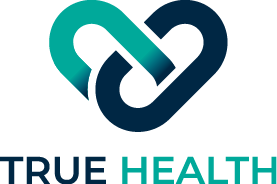Can Massage Therapy Help with Depression? A Look at the Evidence
Depression is a complex mental health condition that affects an estimated 300 million people worldwide. While conventional treatments such as therapy and medication are essential, many individuals are seeking complementary approaches to support their mental well-being. Massage therapy has emerged as a holistic, non-invasive option that can help alleviate symptoms of depression by promoting relaxation, reducing stress, and improving overall mood.
How Massage Therapy Impacts Mental Health
Massage therapy influences the body’s nervous system, triggering physiological responses that help combat the effects of depression. Scientific studies have shown that massage can:
- Reduce Cortisol (the stress hormone) Levels – High cortisol levels are linked to increased stress, anxiety, and depression. Massage helps lower cortisol, promoting relaxation.
- Increase Serotonin and Dopamine Production – These neurotransmitters play a crucial role in mood regulation. Studies have found that massage boosts serotonin and dopamine levels, helping individuals feel calmer and more positive.
- Enhance Sleep Quality – Many people with depression experience insomnia or disrupted sleep. Massage therapy promotes deeper, restorative sleep by calming the nervous system.
- Encourage Mind-Body Connection – Physical touch through massage provides comfort, reducing feelings of isolation and emotional distress.
Scientific Evidence Supporting Massage for Depression
A study published in the International Journal of Neuroscience found that individuals with depression who received regular massage therapy experienced a significant reduction in anxiety and mood disturbances. Another study in the Journal of Clinical Psychiatry reported that massage improved emotional well-being in individuals with major depressive disorder.
Techniques Used in Massage for Mental Health
- Swedish Massage – Uses long, flowing strokes to relax the body and mind.
- Aromatherapy Massage – Incorporates essential oils like lavender and chamomile, which have been shown to reduce anxiety.
- Reflexology – Stimulates pressure points in the feet and hands to promote overall relaxation.
- Craniosacral Therapy – A gentle technique that focuses on the head and spine, often used for stress relief.
Who Can Benefit from Massage for Depression?
Massage therapy is beneficial for:
- Individuals experiencing chronic stress, anxiety & depression
- Those dealing with seasonal affective disorder (SAD)
- People recovering from grief or trauma
- Individuals struggling with sleep disturbances
A Complementary Approach to Mental Wellbeing
While massage therapy is not a replacement for professional mental health treatment, it can serve as a valuable addition to a comprehensive wellness plan. Regular sessions can help regulate emotions, improve sleep, and support overall resilience. If you or someone you know is struggling with depression, consider integrating massage therapy alongside traditional treatments. By addressing both the physical and emotional aspects of well-being, massage therapy can be an essential tool in managing mental health.


